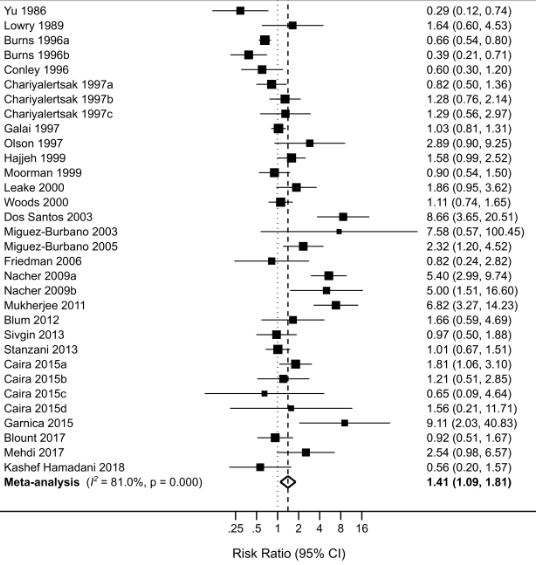Smoking is known to increase the risk of oral candidiasis as well as bacterial pneumonia and meningitis, but large studies looking at the risk of invasive fungal infections (IFIs) across different patient groups have been lacking.
Dr Annabelle Pourbaix and colleagues in Paris have published a systematic review of smoking as a risk factor for IFI, based on 25 cohort and case-control studies.
In the meta-analysis, they found a pooled risk ratio (RR) of 1.41 (CI 1.09-1.81; p=0.008) for IFIs overall. The risk was higher for dimorphic fungi, which tend to cause disease following inhalation. However, no increased risk was seen for aspergillosis, Pneumocystis pneumonia or invasive candidiasis.

They identified some evidence that IFIs were more severe in smokers, and one older study found that Pneumocystis pneumonia occurred earlier in smokers living with HIV.
The authors noted that the studies included were heterogeneous and many were affected by methodological weaknesses and confounding, and call for larger high-quality studies to be carried out.
- Read the paper: Pourbaix et al (2020) Smoking as a Risk Factor of Invasive Fungal Disease: Systematic Review and Meta-Analysis
- Help your patient to quit smoking with NHS Smokefree
